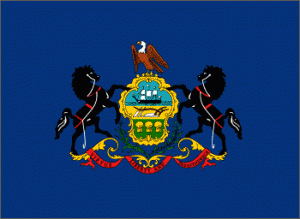PA House to declare October 2012 as “Prayer Month”
 Readers of this blog and those paying attention to news important to secular Americans may be aware that Pennsylvania lawmakers have been notorious for — if not outright violating the Establishment Clause — blurring the line separating church and state.
Readers of this blog and those paying attention to news important to secular Americans may be aware that Pennsylvania lawmakers have been notorious for — if not outright violating the Establishment Clause — blurring the line separating church and state.
While sectarian Christian prayers have permeated House of Representative sessions (mentions of Jesus’ blood and a death on a cross to save people from sin are more frequent than one may think), lawmakers have unanimously declared 2012 to be “The Year of the Bible” (mentioning the Bible as “holy scriptures” and “the word of God”) and attempted to pass legislation — with support of Governor Tom Corbett — which would send taxpayer monies to private religious institutions in a ‘school voucher’ program.
Lawmakers — obviously ignoring the concerns of secular Pennsylvanians and those in favor of church/state separation — are now attempting to declare October of this year [because “The Year of the Bible” apparently is not enough] as “Prayer Month” with House Resolution No. 922, yet another ‘non-controversial resolution.’
The full text of the resolution (including the line numbers) is as follows:
Setting aside time to pray, as should be evident, does not admit of an inclusive resolution. After all, prayer is specifically a religious activity and — as should be especially evident — is that of an intercessory nature (almost always involving some sort of supernatural force or being). Prayer, which is supposed to, according to this resolution, “being people together in true unity,” is actually inherently divisive as this resolution is. Rather than staying out of religious matters, lawmakers seem to be ‘respecting an establishment of religion’ by authoring this legislation.
Also suspicious about this resolution is the statement “This event is not created for political reasons or to promote any other agenda expect prayer.” What business do Pennsylvania lawmakers have involving themselves in the matters of prayer? Should not the government be chiefly concerned with matters of political importance? On their own admission, Pennsylvania lawmakers are involving themselves in religious matters (which they should be staying out of – leaving “the right to worship” to Pennsylvanians “according to the dictates of their consciences”). What, also, are Pennsylvanian lawmakers doing sending copies of this resolution to churches in the 180th legislative district?
I am quite cynical at this moment concerning political pandering. This resolution says it is not for political reasons, but I have great doubt concerning whether this is actually the case. In an election year, lawmakers — I would venture to guess — are looking for votes and voters to support their campaigns. Prayerful Pennsylvanians, for instance, may see this resolution and be more inclined to vote for a politician…as might be the case with any resolution.
The wall separating church and state in Pennsylvania is under heavy fire from lawmakers. I wonder…do they care about secular Pennsylvanians or those who want to keep religion out of government and the government out of religion? Instead of wasting time with resolutions like this, lawmakers should get to work concerning issues such as education, the environment, and many more which warrant more attention than a declaration of prayer. Prayer, so far, has been an ineffective course of action in the quest to fix problems in Pennsylvania. If Pennsylvanians want to pray, though, they may do so without the state government getting involved. Leave decisions and declations of prayer to places of worship and individuals.
Update:
Take action – Secular Coaltion for America action alert, Freedom from Religion Foundation action alert, commentary from Hemant Mehta


Recent Comments